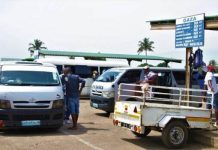Africa-Press – Mozambique. Tackling the root causes behind Mozambique’s insurgency is the only way to provide a lasting solution, experts have said.
Counterterrorism in Mozambique was one of the topics of discussion at the Sovereign Security Africa 2021 conference held in late August, which also brought together experts to look at cyber warfare and civil unrest, amongst other things.
Political analyst at the African Centre for the Constructive Resolution of Disputes (Accord), Welile Nhlapo, believes the insurgency in Mozambique’s Cabo Delgado province was created by local grievances. He maintains high unemployment, low literacy, poverty and few services are the main reasons for the insurgency breaking out, with major unemployment combining with a history of economic marginalisation.
“The conflict is multi-layered, including anger at loss of land and livelihoods by locals in favour of elites linked to the south, intergenerational tensions, corruption, use of violence by police and private security companies, with no benefits from international extractive industries accruing to the local population.”
Borges Nhamirre, Researcher at the Centre for Public Integrity, noted that Mozambique is poor everywhere but what is different about Cabo Delgado is that there is huge energy industry investment in the province, but by 2014 already, people had started to be displaced from their land and their access to the sea taken away.
“It is important to understand that the people of Mozambique are not radical at all, including the people of Cabo Delgado. The insurgency started because of a government failure to address the grievances of the people. As soon as the government of Mozambique can employ the people of Cabo Delgado, train them, give them jobs…Mozambique will not need military operations then.”
Liesl Louw-Vaudran, Senior Researcher at the Institute for Security Studies Africa, said that the situation in Cabo Delgado has captured global attention, destabilised northern Mozambique and potentially poses a threat to foreign investment in the entire southern African region, prompting the Southern African Development Community (SADC) to deployed what it calls a standby force to assist Mozambique combat violent extremism in Cabo Delgado.
She believes the insurgency is primarily a governance challenge: “this is an insurgency rooted in local grievances, marginalisation. This insurgency risks aggravating political/ethnic rivalries and dissatisfaction with government.”
Jasmine Opperman, an analyst at 14 North Strategies, said “we are always confronted by same concepts of unemployment, corruption etc. but we are missing the fundamental issue that first has to be put into place in the long term and that is the human dignity that has been stolen.” To seek a resolution, the government needs to realise a fundamental shift is needed in how they are going to approach the people of Cabo Delgado.
Military response
To date, the Mozambican response to the insurgency has been a military one, with soldiers, police, private security contracts and now SADC and Rwandan forces involved. Private military contractors such as Wagner Group and Dyck Advisory Group met with mixed results but Rwandan and SADC forces are seeing better results, and have recaptured several towns, including Mocimboa de Praia.
However, Nhlapo said the military forces in Mozambique need to be patient and wait and see what happens as they are entering unchartered territory. He said the SADC is not sure what it is up against. Based on Accord research, Nhlapo recommended possible solutions to the insurgency, including dialogue, inter-faith collaboration, conflict management training, securing Mozambique’s porous borders, providing youth employment opportunities in Cabo Delgado, using local recruitment and strengthening the capacity of the Mozambican military.
“The government of Mozambique and the international community should strengthen the capabilities of the Mozambican army. With poorly trained, ill-equipped and under-paid troops, the ability to conduct complex missions against insurgents is compromised from the outset. Investment and training are crucial,” Nhlapo believes.
Opperman noted that initial military successes, led by Rwanda, are misleading as they are creating an illusion of victory. She believes the insurgents voluntarily withdrew from areas ahead of the Rwandan forces and cannot be found in traditional conflict areas as they have melted away. “They have one thing on their side and that is time. SADC cannot stay there much long the than three months given the current budget. The insurgents are well informed in terms of what can be achieved in the long term.”
Joe Ven Der Walt, CEO of Focus Group, shared a similar view. He said some insurgents are blending back into internally displaced persons camps as they have families in the area. “All they have to do is wait. Rwanda, the SADC are not going to be there forever. If insurgents elevate attacks…who is going to deal with that?” The Mozambican military has proven unable to deal with the insurgents by themselves.
Opperman believes part of the solution is dialogue. “It’s time we forget about the gas industry for now, it’s time to focus on the needs of the people of Cabo Delgado. I’m not opposed to security interventions but that is part of a much bigger puzzle.”
Van Der Walt believes part of the solution is empowering and uplifting local communities in Cabo Delgado. For example, the oil and gas industry could be creating jobs locally by sourcing food etc. from local suppliers instead of importing it and depriving the locals of benefiting from oil and gas investment. Another issue is corruption within the Mozambican government and the setting up of front companies by politicians. “If that is not going to stop, there will be a recurring problem.”
Eeben Barlow, founder of Executive Outcomes and Chairman of STTEP International, said the people of Cabo Delgado feel let down by government. He cautioned that the military can win a conflict but the politicians have to win the peace.
defenceWeb will on 16 November examine regional and international efforts to counter the violence in Mozambique, through a new virtual conference, with the theme ‘Developing a multi-theatre approach to restoring peace in Cabo Delgado’.






